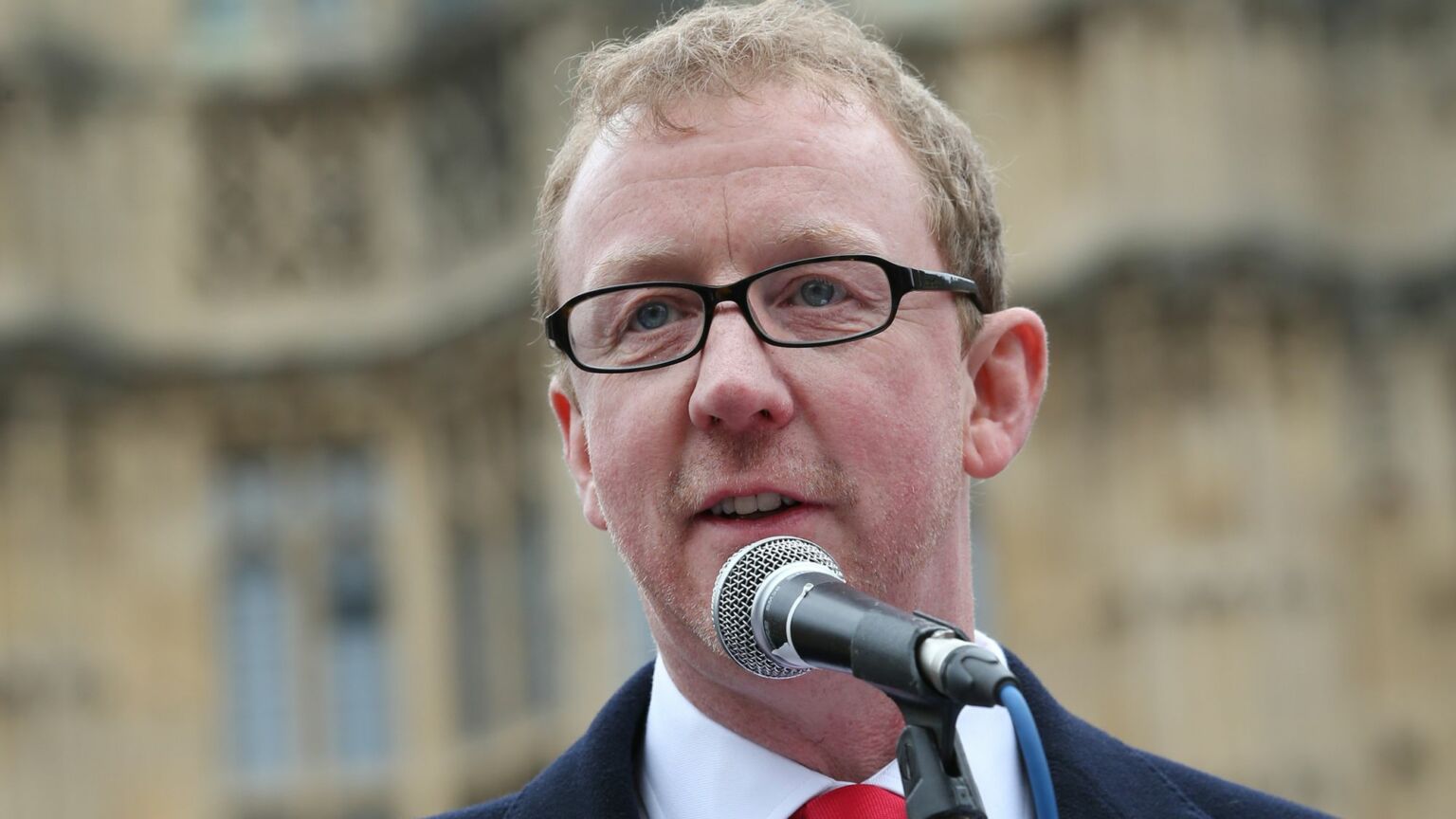A Britpop MP is the last thing Britain needs
The rise of Blur’s Dave Rowntree reveals the dismal state of the Labour Party.

Drummer Dave Rowntree, the least offensive member of Nineties group Blur, was selected last week as Labour’s General Election candidate for the constituency of Mid Sussex. This is a nicely verdant region of pleasant towns, currently represented by Tory MP Mims Davies with a stonking majority of 18,000 – but, obviously, all bets are now off. Thanks to the Tories sparking both visceral revulsion and tired-eyed apathy in their former voters, Britain could soon have its first Britpop MP.
Now, this could be worse. A lot worse. Rowntree was the archetypal drummer – steady as a rock, a retiring type. At least he is not one of the Britpop frontmen – one of those ‘characters’ would make for a truly insufferable politician.
Still, the Britpop era is one we would do well to leave behind. And Labour’s infatuation with it speaks to its terrible judgement. This was a time when putting on a lilac shirt from Oxfam and singing ‘quirky’ lyrics that mentioned Tesco’s and halfpenny chews meant that you were suddenly acclaimed as a great British eccentric pop genius on a level with Ray Davies. To those of us weaned on the genuinely unique Marc Almonds, Alison Moyets and Morrisseys of the previous decade, this all seemed quite grotesquely tame.
Musically, too, Britpop was very ordinary. For better or worse, depending on taste, the contemporaneous records of, say, the Prodigy or Massive Attack sounded like flying saucers landing. On the other hand, much of Britpop was simply melodic Sixties-infused guitar pop – pleasant enough in itself, but hardly strikingly innovative.
Yet with most of the music scene being so vacant in the 1990s, we were encouraged to think of these singalongs and their purveyors as being laden with significance. Even Oasis were spun as being somehow profound. We were never asked to figure out what M People ‘meant’, but guitar groups of the Britpop era always seemed to require elucidation. Nobody knows why.
What does strike me now, looking back, is that this was the very last time when any sense of positivity about the history and heritage of Britain, however ineptly expressed, was permitted in the mainstream. Ludicrously, Britpop has sometimes since been described as ‘jingoistic’ and has even been ‘blamed’ for Brexit. This is a bit like fingering Carry On Follow That Camel for the current conflict in the Middle East. The Britain of Britpop was forming a band called Dralon, sucking in your cheeks and singing a naff ditty that mentioned vinyl curtains and your girlfriend’s sister. A Scrutonesque elegy for a heroic lost England it was not.
In fact, Oasis aside, Britpop was mostly populated by middle-class indie boys with utterly banal political opinions. As always with these milieus, the issue isn’t with people speaking their brains, but with their brains being all exactly the same.
Nowadays, the ageing Britpop stars are all, to a man, dismal ‘sensible’ centrists. They all have the same cultural reference points, they reach for the same political toolkit, even as the country has been utterly changed by technology, uncontrolled immigration and general decline. This is true even of the more unusual and interesting voices. Think Brett Anderson of Suede – a Mid Sussex boy himself, which given his rivalry with and disdain for Blur must make Rowntree’s likely election seem like the result of a cosmic vendetta. Or Jarvis Cocker of Pulp. Both of their intelligent, articulate minds fall out of their heads when they get anywhere near politics.
Tragically, as Rowntree’s rise in the Labour Party shows, members of the Britop generation have now reached an age where they are not just commenting on politics from the sidelines, but they expect to run the country, too.
Rowntree will no doubt fulfil the same role in the parliamentary Labour Party as he did in Blur – standing at the back looking normal, while the affected peacocks preen out front. He is not mad as a crate of frogs, like Clive Lewis or Angela Eagle. Nor is he painfully thick like Dawn Butler or Lloyd Russell-Moyle. He is merely a bog-standard indie bloke, with all the dispiriting drear that implies.
But there’s something appropriate about this. Britpop, after all, was a sad 1990s recreation of the pop scene of the mid 1960s, which faded mercifully swiftly. Meanwhile, Keir Starmer’s Labour is a half-arsed revival of New Labour. Starmer has taken something that seemed innovative a few decades ago and made it seem vaguely popular again, but mainly because nothing much else is going on. We can only hope it disappears as quickly as Britpop did.
Gareth Roberts is a screenwriter and novelist, best known for his work on Doctor Who. His new book, Gay Shame: The Rise of Gender Ideology and the New Homophobia, can be pre-ordered here.

Matt Ridley and Brendan O’Neill – live and in conversation
Thursday 21 March – 7pm to 8pm GMT
This is a free event, exclusively for spiked supporters.
Picture by: Getty.
To enquire about republishing spiked’s content, a right to reply or to request a correction, please contact the managing editor, Viv Regan.








Comments
Want to join the conversation?
Only spiked supporters and patrons, who donate regularly to us, can comment on our articles.